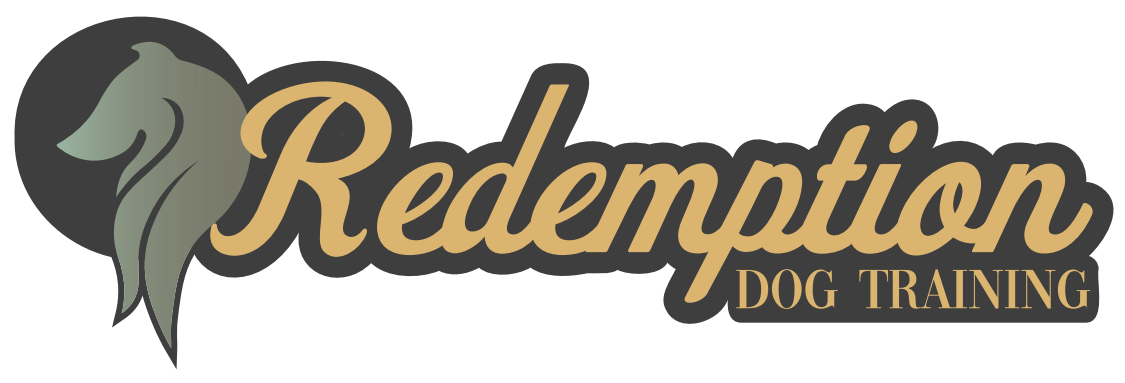Ensuring Health, Ethics, and Responsible Practices

If you're looking to buy a purebred dog, it’s crucial to ensure you're working with an ethical breeder—someone who prioritizes the health, temperament, and well-being of their dogs over profit. Unfortunately, backyard breeders and puppy mills thrive off of uneducated buyers, leading to countless dogs suffering from poor health and behavioral issues. So how can you tell the difference? This guide will help you identify responsible breeders who are truly invested in bettering the breed and ensuring a great match between you and your future pet.
Key Qualities of an Ethical Dog Breeder
A responsible breeder goes beyond just producing puppies for sale. They focus on health, temperament, and responsible breeding practices. Here’s what to look for:
1. Meet the Parents
A good breeder will have both the mother and father on-site and allow you to meet them. Observing the parents can give you insight into the temperament and health of the puppy you’re considering.
2. Health Testing with Documented Lineage
Ethical breeders ensure both parents are health-tested and come from a lineage of tested dogs. They should provide full documentation proving genetic screening for breed-specific health conditions.
3. Vet-Approved Health Checks
Puppies should be examined and health-tested by a licensed veterinarian—not just the breeder themselves. No ethical vet will recognize DIY vaccinations from a breeder, and any reputable vet will re-vaccinate if this has occurred.
4. Fair and Ethical Pricing
Avoid breeders who charge extra for rare colors or specific sexes. Ethical breeders focus on temperament and proper placement rather than trends or profits.
5. Temperament Testing for Placement
A responsible breeder temperament-tests each puppy before placing them in a home. This ensures the puppy is matched based on personality and lifestyle rather than appearance, reducing frustration and rehoming rates.
6. Early Neurological Stimulation (ENS)
ENS is a military-proven program that starts when puppies are just three days old. It helps them develop stronger immune systems, resilience to stress, and fewer behavioral issues later in life.
7. Puppy Culture Program
Good breeders expose their puppies to different environments, crate training, car rides, children, adults, safe animals, toys, and various surfaces. This ensures the puppies grow up well-adjusted and confident.
8. Proven Dogs in Sports, Work, or Show
Reputable breeders produce dogs that have been proven in agility, AKC titles, breed-related work, or other performance activities. This demonstrates a commitment to the breed standard and responsible breeding.
9. Independent Temperament Testing
A breeder committed to ethical practices will have an experienced trainer or an unbiased third party temperament-test their puppies. This ensures the selection process is objective and thorough.
10. Lifetime Commitment and Return Policy
A responsible breeder will always take their dogs back if an owner can no longer care for them. This prevents dogs from ending up in shelters and proves the breeder is committed to the well-being of their puppies beyond the sale.
11. Contract and Responsible Breeding Rights
Ethical breeders require a contract to ensure their dogs go to responsible homes. They also do not hand out breeding rights freely, as they want to ensure their breed is being improved—not exploited for profit.
12. Proper Age for Puppy Placement
Puppies should not be sent to new homes before 8–12 weeks old. Their first fear period occurs between 8–10 weeks, so breeders typically place them right before or after this sensitive stage to ensure a smooth transition.
13. Documentation and Support
An ethical breeder will provide paperwork for vaccinations, a health guarantee, a contract, puppy insurance (typically for the first year), and full health testing information for both the puppy and its lineage.
How to Find an Ethical Breeder
Finding a responsible breeder may take time, but patience is key. Here are some steps to take:
- Join breed-specific Facebook groups and ask for breeder recommendations that meet the above criteria.
- Be willing to travel. Many of the best breeders will not ship puppies, as it can be traumatic for them. A good breeder will want you to show dedication by picking up the puppy in person.
- Ask for references. A reputable breeder will happily provide testimonials from past puppy owners.
- Visit the breeder’s facility. This allows you to see how the puppies are raised and meet the parents in person.
- Watch out for red flags. Avoid breeders who can’t provide health testing documentation, allow you to pick a puppy solely based on color or sex, or who sell puppies at very young ages.
The Dangers of Puppy Mills and Backyard Breeders
If you’re buying a purebred dog, it should be to better the breed—not to support profit-driven breeders. Backyard breeders and puppy mills prioritize money over health and temperament, often leading to:
- Unhealthy puppies due to lack of genetic screening
- Poor socialization, causing behavioral problems
- High rehoming rates due to mismatched placements
- Overcrowded shelters when owners can no longer manage their dog’s health or behavior
Many people unknowingly buy from puppy mills because of misleading advertising. Some pet stores, even those advertising AKC-registered puppies, source their dogs from mills. They may even stage fake family environments to trick buyers into believing the puppies were raised in a loving home. If a breeder cannot meet all the criteria listed above, there’s a high chance they are cutting corners or operating unethically.
Consider Adoption
If you can’t find an ethical breeder or want to avoid the risks associated with backyard breeding, adoption is always a great option. Shelters and rescues are full of amazing dogs looking for loving homes. If you need help finding the right match, temperament testing can help ensure a good fit.
Need Help Finding a Responsible Breeder?
Navigating the world of dog breeding can be overwhelming, but you don’t have to do it alone. At Redemption Dog School, we offer a Puppy Concierge Service
to help you find the perfect breeder, ensuring your new puppy comes from an ethical and responsible source. We can also assist with temperament testing to match you with the right dog for your lifestyle. If you’re ready to find a well-bred, healthy, and happy puppy, visit our Puppy Concierge Service
today!
Conclusion
Finding a reputable breeder requires patience, research, and diligence. But in the end, it ensures you're getting a healthy, well-adjusted puppy while supporting ethical breeding practices. If you have any questions or need help finding a responsible breeder, feel free to reach out. Whether through ethical breeding or adoption, every dog deserves a loving home and a great start in life!

Bringing a puppy into your home is an exciting journey, but it comes with a series of developmental stages that can challenge even the most prepared dog owners. Understanding these periods will help you set realistic expectations and provide the right kind of guidance as your puppy grows into a well-balanced adult. 8-10 Weeks: The First Fear Period At this stage, puppies are experiencing the world in a brand-new way, and sometimes that can be overwhelming. You may notice your pup startles easily, seems hesitant in new situations, or suddenly acts fearful of things they weren’t afraid of before. This is completely normal. The best thing you can do is keep experiences positive but low-pressure. Avoid forcing them into overwhelming situations and instead create gentle, confidence-building interactions. This phase will pass, and your patience now will pay off later. 8-16 Weeks: The Duckling Phase & Crucial Socialization Period This is the golden window for socialization! Your puppy will likely follow you everywhere, staying close like a little shadow. They’re eager to learn, eager to bond, and their recall (coming when called) is usually at its peak. This is the time to expose them to as many sights, sounds, surfaces, and experiences as possible—people, children, other dogs, different environments, and household noises. The key here is positive exposure. Make every new experience rewarding and fun. Keep in mind, though, that they still need a lot of sleep—18 to 20 hours a day! Over-tired puppies can become cranky and less receptive to learning. 4-6 Months: Early Puberty, Teething, and Growing Independence Say hello to teething, mouthiness, and a little more attitude! As your pup starts losing baby teeth and those adult chompers come in, they’ll look for anything and everything to chew on. Provide appropriate chew toys to save your shoes, furniture, and sanity. This stage also brings the first signs of independence. Suddenly, they aren’t glued to your side anymore and may start “forgetting” their training. Recall becomes less reliable, and they might start testing boundaries. Stay consistent. Keep reinforcing the rules, and don’t take the sudden shift personally—it’s all part of their development. 6-12 Months: The Rebellious Teenager Phase This is, without a doubt, one of the most frustrating stages for dog owners. Your sweet puppy may turn into a stubborn, defiant, and destructive whirlwind overnight. Counter-surfing, getting into the trash, chewing things they shouldn’t, and ignoring commands they once knew perfectly—yep, it’s all part of this phase. The key here? Consistency and follow-through . If you ask for a command, ensure they follow through. Don't let bad habits slide because they will stick. Puberty is in full swing, bringing increased energy, frustration, and even behaviors like marking or humping. If intact, this is when many owners start considering spay/neuter options. Keep in mind, they still need about 18-20 hours of sleep per day until around 10 months old. 8-14 Months: The Last Fear Period Just when you think you’re out of the woods, your pup may suddenly act afraid of things they were perfectly fine with before. A flag waving in the wind, the floor being too shiny, or a neighbor in a hat may now seem terrifying to them. This is completely normal, but how you respond matters. The worst thing you can do is coddle or baby them through it. Instead, act as if nothing is wrong, encourage them with their favorite activities (play, treats, training), and keep moving forward. If you find this phase particularly challenging, don’t hesitate to reach out for help—we’re here to guide you through it. Final Thoughts Raising a puppy isn’t always easy, but understanding these developmental periods will help you navigate the challenges with patience and confidence. Each stage brings its own obstacles, but also its own joys. If you stay consistent, keep socialization positive, and provide appropriate structure and training, you’ll set your pup up for success in the long run. And remember—if you need support, we’re here to help! For more guidance and structured puppy training programs, check out our Puppy Training Program Utah County to set your pup up for success right from the start!
